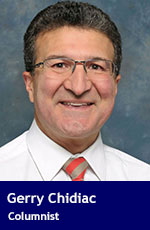 Nelson Mandela said, “There can be no keener revelation of a society’s soul than the way it treats its children.”
Nelson Mandela said, “There can be no keener revelation of a society’s soul than the way it treats its children.”
American news and social media were recently stirred up by a video of children meeting with Sen. Dianne Feinstein. The video went viral.
The children represented a youth organization known as the Sunrise Movement, which advocates political action on climate change. They’re strong supporters of the Green New Deal currently being discussed in the U.S. Congress.
In the shortened version of the video, Feinstein seems condescending with the young people who come into her constituency office in California. In the longer version, however, you can see that though she appears frustrated, Feinstein is trying to find common ground with the youth. Toward the end of the video, she’s even seen helping one outspoken older teen to channel her political passion into an internship, presumably in her office.
As a professional educator, what I find most disturbing about this issue is the attitude toward the children expressed in the media. American journalists Chuck Todd and Andrea Mitchell, on the program Meet the Press, discussed how the incident made them “uncomfortable.” Conservative activist Al Cardenas added, “I … would have resented anybody in their school pounding my kids with propaganda either left or right of any political issue.”
There are several things these commentators don’t seem to understand.
First, teachers follow a code of ethics that doesn’t allow us to “pound kids with propaganda.” According to my union, the British Columbia Teachers’ Federation, “The member speaks and acts toward students with respect and dignity, and deals judiciously with them, always mindful of their individual rights and sensibilities.” It further states, “A privileged relationship exists between members and students. The member refrains from exploiting that relationship for material, ideological or other advantage.”
We present important issues to our students but we must remain as unbiased as possible. If we don’t, we can be disciplined.
Secondly, our young people are very passionate about the world around them and their place in it. They really do want to make the world better and as the Sunrise Movement demonstrates, they’re often willing to take an active role.
There is nothing uncomfortable about children taking a political stand. In fact, it’s inspiring, and history is riddled with amazing and courageous young people.
Craig and Marc Kielburger were in middle school when they began their activism. Their advocacy has grown into the Me to We movement, which is present in schools across the country and continues to empower youth to make the world better.
Malala Yousafzai began speaking out for the educational rights of girls in her country of Pakistan and has become the youngest person ever to win the Nobel Peace Prize.
The students of Stoneman Douglas High School in Parkland, Fla., responded to a school shooting by organizing the March for Our Lives in Washington, D.C., in 2018.
As a teacher, I am appreciative when students challenge issues. Perhaps the reason why some adults are uncomfortable when young people speak is because they hold us accountable. If I’m not living the ideals I’m teaching, such as honesty and respect, they will certainly let me know. My students hold me to a high standard and this not only makes me a better teacher, it makes me a better person.
The fact is that our young people look at the problems in the world and say, “Let’s do something.” They see beyond the political gerrymandering and self-interest, and understand the impact certain issues can have on the future, their future.
We need not fear the voices of our children and youth. They have wisdom and idealism that’s potent and powerful. Let’s listen to them and give them the respect they deserve.
Troy Media columnist Gerry Chidiac is an award-winning high school teacher specializing in languages, genocide studies and work with at-risk students.
The views, opinions and positions expressed by columnists and contributors are the author’s alone. They do not inherently or expressly reflect the views, opinions and/or positions of our publication.


